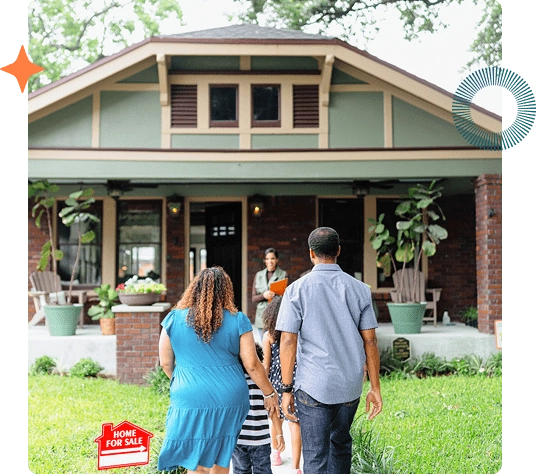View Details
†Subject to approval and credit worthiness of applicant(s). This is assuming a purchase transaction, single-unit primary residence only, 97% LTV, and a 640 minimum FICO credit score. You cannot qualify if you make higher than 80% of the median income in the area in which you are looking to buy. For example, if you live in an area where the median income is $99,596, you can’t use more than $79,676.80 to qualify for this program ($99,596 x 0.8 = $79,676.80). There’s a $766,550 upper loan limit on this conventional option. The content presented here is provided for high-level information purposes only and not an offer to lend or extend credit. Not all loan products or terms and conditions apply. Products, rates and terms subject to change without notice.
^Restrictions apply. View complete details.
‡ARM loans are variable rate loans; interest rates and payments may increase after consummation. For example – 15/15 ARM with a term of 30 years for $394,900, Initial Interest Rate of 4.875%, and an APR of 5.309%, your monthly payments for years 1–15 would be $2,089.84 and for years 16-30 monthly payments could be a minimum of $2,107 to a maximum of $2,683 (based on the current Index Plus Margin). Monthly payments do not include taxes and insurance and the actual payment obligation will be greater. Payments are based on a 60-day lock period with a scenario assuming borrower has excellent credit of 740 or higher. Subject to credit approval.









